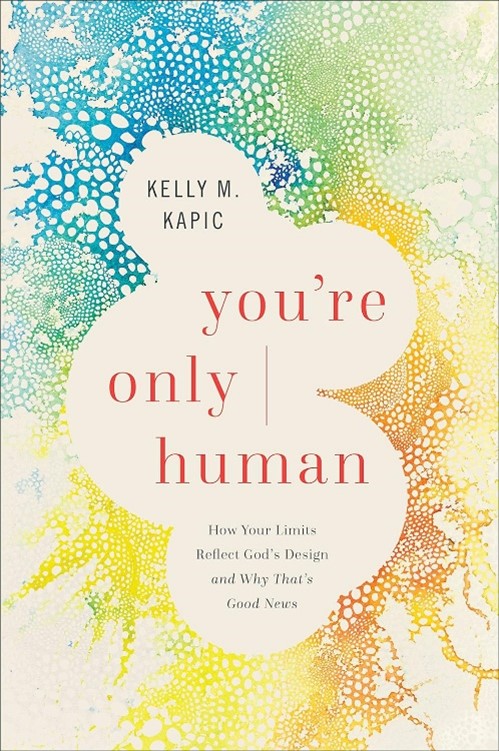Human Identity Starts with Creaturely Finitude

The Lies of Self-Making
Kapic addresses the myth of self-creation, which says that through self-expression and self-improvement techniques I will find who I am and lead a fulfilling life. He notes that the cultural pressure to be self-made and self-sufficient manifests itself in countless ways—in, for example, the tendency to “admire the driven individual who seeks personal triumph more than … the relational person who is embedded within a community” (100). So too, “we seek self-improvement through greater organization in our lives. We skim the internet for short articles on time management, since we long ago gave up on reading whole books. Sometimes we decide to get up earlier or stay up later, hoping to add another hour or two of productivity to our lives” (10). We may go on searching for the latest life-hack, newest productivity technique, or optimization strategy. Such things can be helpful, but frequently they betray an underlying industrial or mechanistic approach to human problems.
While there is certainly a place for improving habits and striving for efficiency in our lives, these efforts must not swallow up higher human goods. Consider the extreme inefficiency of caring for a young toddler or elderly parent, or the long agonizing hours of inefficient conversation and presence required to walk together with someone through despair, grief, or depression. These are highly inefficient, but deeply human and deeply beautiful, expressions of love. Kapic hits the right note: “when our evaluations of work and life become mechanistic, then we begin to see ourselves and others as mechanisms.” And then the kicker: “when productivity alone reigns, we cultivate idolatry rather than worship, isolation rather than community, and selfishness rather than love” (120).
The Gifts of Creatureliness
Changing our mindset from one of “autonomous machine” to one of “contingent creature” is an uphill task. But Kapic sees it as central to recovering a sense of sanity and peace in our lives. There is a givenness to our existence that can actually be freeing. It is true that being a creature implies limits. But human limits are not oppressive structures placed on us; they are part of our design, stitched into the very fabric of our bodies and of the universe. When we attempt to reject these limits, we are working against our own nature.
We are indeed creatures: embodied, contingent beings. And being a creature is good. Yet, Richard John Neuhaus notes in Death on a Friday Afternoon, “the word ‘creature’ is hardly ever used today except negatively. Horror movies have creatures from the deep, and we speak of bothersome insects as creatures, but most people would not call their pet dog a creature, never mind their best friend.” Neuhaus sees this as “a triumph of Gnosticism in our popular culture,” a rejection of the gift of bodily life, and an indication of a “desire to be like God on our own terms.” Neuhaus encourages us to remember “the most elementary fact about what and who we are—creatures. We are not the Creator; we are not God” (120-121).
Kapic makes a similar point that “this impulse to reject our creaturely limits is as old as sin itself.” God pronounced the creation of man and woman—in their finite state with inherent bodily limits—as very good. Yet it was the serpent who whispered in the primordial pair’s ears to reject God-given limits and become like God—implying that such “divinely given limits are a fault to be overcome rather than a beneficial gift to be honored” (12-13). When we reject the goodness of bodily limits—“that we have these talents and resources and not all talents and resources”—we end up living by “unrealistic expectations about how much we can accomplish in a day,” we fail “to value rest and slow-growing relationships,” and we end up setting “inappropriate expectations” and employing “dehumanizing practices” (14). We need to instead, “affirm what God has called good. Our bodies and their inherent limits are a good gift from a good Creator” (59).
The Call to Biblical Realism
Kapic offers a clear and sensible evaluation of the contemporary situation and a healthy dose of biblical realism, which acknowledges that the Christian life is not an upward march of getting better and better in every way, every day. It is a call to sacrifice, to the cross, and ultimately to resurrection. Kapic argues that such a “posture allows us to express both lament and gratitude, each a genuine part of our experience and neither canceling out the other.”
Biblical realism also emphasizes the importance of rhythms and rest. We cannot keep running on the modern treadmill endlessly—we will perform ourselves to death. Kapic suggests Sabbath rest as an answer, arguing that it is “one of the most countercultural and radical ideas in the Bible” (219). Structuring one’s life around, and resting in, the rhythms of God’s work in the world, the Word, and the Sacraments frees us to step off the tyrannical treadmill of self-making and into the Sabbath of God, which is God’s good and gracious gift to his creatures. And that is true creature comfort.
Joshua Paulingis headmaster of All Saints Classical Academy and vicar at All Saints Lutheran Church (LCMS) in Charlotte, NC. He also taught high school history for thirteen years and studied at Messiah College, Reformed Theological Seminary, and Winthrop University. He is author of Education's End and co-author with Robin Phillips of Are We All Cyborgs Now? He also has written for Front Porch Republic, Mere Orthodoxy, Public Discourse, and Touchstone.
• Get SALVO blog posts in your inbox! Copyright © 2026 Salvo | www.salvomag.com https://salvomag.com/post/creature-comforts



















